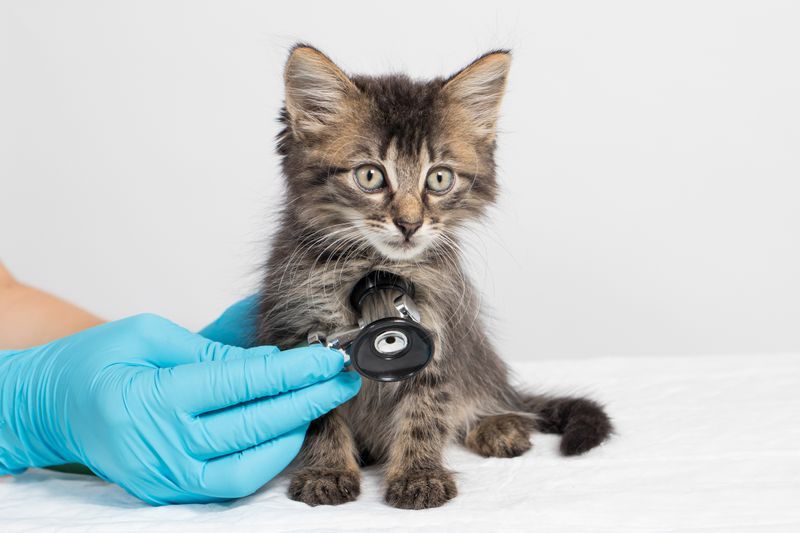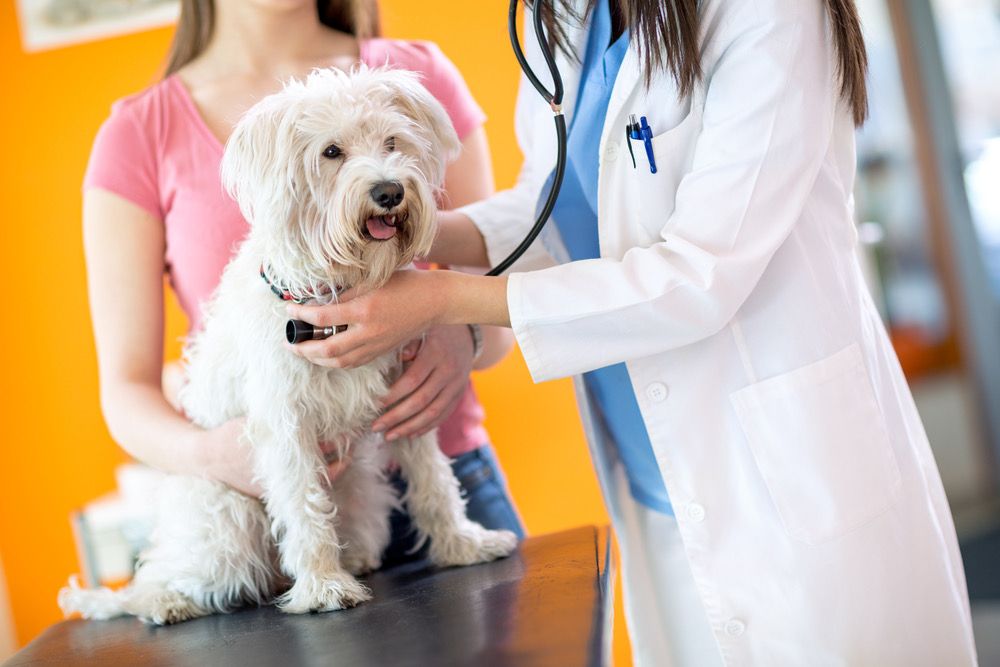Heart Disease in Dogs and Cats: What Every Pet Owner Should Know
Learn how to recognize early signs of heart disease in dogs and cats and understand the available treatment options. From lifestyle management to custom-compounded veterinary medications, discover how Rock Ridge Pharmacy helps pets live longer, healthier lives.
Introduction

If you've ever noticed your pet slowing down, coughing more than usual, or struggling to catch their breath, you’re not alone. Heart disease is a common issue among dogs and cats, but with the right care and medication, pets can still lead happy, active lives. The key is early detection and proper treatment.
Signs of Heart Disease in Dogs and Cats
Many pet owners mistake early signs of heart disease for aging. Recognizing symptoms early ensures timely treatment and improves your pet’s quality of life.
Persistent coughing, especially at night
Difficulty breathing or rapid breathing
Low energy and reluctance to exercise
Swollen belly due to fluid buildup
Sudden weakness or fainting spells
If your pet exhibits any of these symptoms, contact your veterinarian promptly for a full heart evaluation.
Treatment Options: Medications & Beyond
Once diagnosed, heart disease is often managed with medications to regulate blood pressure, improve circulation, and prevent fluid buildup. Your vet will choose the best treatment based on your pet’s condition.
Pimobendan (Vetmedin)
Improves heart function and blood flow, helping pets maintain active lifestyles.
Enalapril / Benazepril
Helps manage heart failure and control blood pressure.
Furosemide
Reduces fluid buildup in the lungs, improving breathing and comfort.
Atenolol
Regulates heart rate and blood pressure, supporting steady cardiac function.
Why Choose Compounded Medications?

Giving medicine to pets can be challenging. That’s why Rock Ridge Pharmacy offers pet-friendly flavors such as chicken, beef, tuna, salmon, and fruity options—available in both liquids and flavored chewables.
How Compounded Medications Help Pets:
- Customized dosage based on pet size and condition
- Pet-friendly flavors for better compliance
- Alternative forms: chewables, liquids, or transdermal gels
Learn more about our custom-compounded for pets.
Natural Remedies for Pet Heart Disease
Some pet owners use natural supplements alongside prescribed medications to support heart health. These should always complement—not replace—veterinary treatment.
Visit our online shop to explore pharmacist-approved supplements for pet heart health.
Veterinary Compounding at Rock Ridge Pharmacy
Custom medications for pets — safe, precise, and easy to administer

Why Choose Rock Ridge Pharmacy for Veterinary Compounding?
At Rock Ridge Pharmacy, we specialize in creating custom compounded medications for pets of all shapes and sizes. Whether your pet needs an allergy-friendly formula, a flavored liquid, or a precise low-dose treatment, our pharmacists ensure accuracy, safety, and palatability in every preparation.
We collaborate with veterinarians to provide tailored therapies — including eye drops, transdermal gels, and chewable formulations — ensuring optimal outcomes and less stress for both pets and their owners.
Frequently Asked Questions (FAQ)
What is veterinary compounding?
Veterinary compounding is the process of customizing pet medications to fit each animal’s specific needs — such as adjusting dosage, creating flavored formulations, or removing allergens that may cause reactions.
Why would my pet need a compounded medication?
Many pets cannot tolerate commercial medications due to their size, species, allergies, or taste preferences. Compounding ensures medications are precisely dosed and easy for your pet to take, improving treatment success.
Is veterinary compounding safe?
Yes. When performed by a licensed compounding pharmacy like Rock Ridge Pharmacy, veterinary compounding follows strict quality, safety, and regulatory standards under the Animal Medicinal Drug Use Clarification Act (AMDUCA).
What types of compounded medications are available for pets?
Compounded medications can include flavored liquids, transdermal gels, chewable treats, eye drops, and capsules. Each form is designed for convenience and accurate dosing based on your veterinarian’s prescription.
Can compounded medications make medicine taste better for pets?
Absolutely! Rock Ridge Pharmacy offers pet-friendly flavors such as chicken, beef, tuna, and peanut butter, helping pets take their medication more willingly and reducing stress for owners.
Are compounded medications available for exotic or small animals?
Yes. Veterinary compounding benefits not only cats and dogs but also birds, rabbits, reptiles, and other small animals. Each formulation is tailored for the pet’s unique physiology and size.
Can Rock Ridge Pharmacy make allergen-free pet medications?
Yes. We can prepare medications without dyes, lactose, gluten, or preservatives that often trigger allergic reactions, ensuring safety and comfort for sensitive pets.
What happens if a medication my pet needs is discontinued?
If a commercial drug becomes unavailable, our compounding pharmacists can recreate the discontinued formula or design an equivalent version under veterinary guidance to ensure treatment continuity.
Can multiple medications be combined into one dose?
Yes. Compounding allows us to combine compatible medications into a single chewable, liquid, or gel, simplifying administration and reducing stress for both pet and owner.
Do I need a prescription for a compounded pet medication?
Yes. All compounded medications require a veterinary prescription. Rock Ridge Pharmacy works directly with veterinarians to ensure the dosage, formulation, and ingredients are tailored to your pet’s exact needs.
Want to Learn More About Veterinary Compounding?
Discover how veterinary compounding can help your pet get the medication they need — in the right dose, form, and flavor. At Rock Ridge Pharmacy, we collaborate with veterinarians to create safe, allergen-free, and easy-to-administer treatments tailored to each pet’s needs.
Serving pet owners across New Jersey — Rock Ridge Pharmacy provides custom-compounded pet medications, ensuring accurate dosing, better taste, and a stress-free experience for your furry family members.


